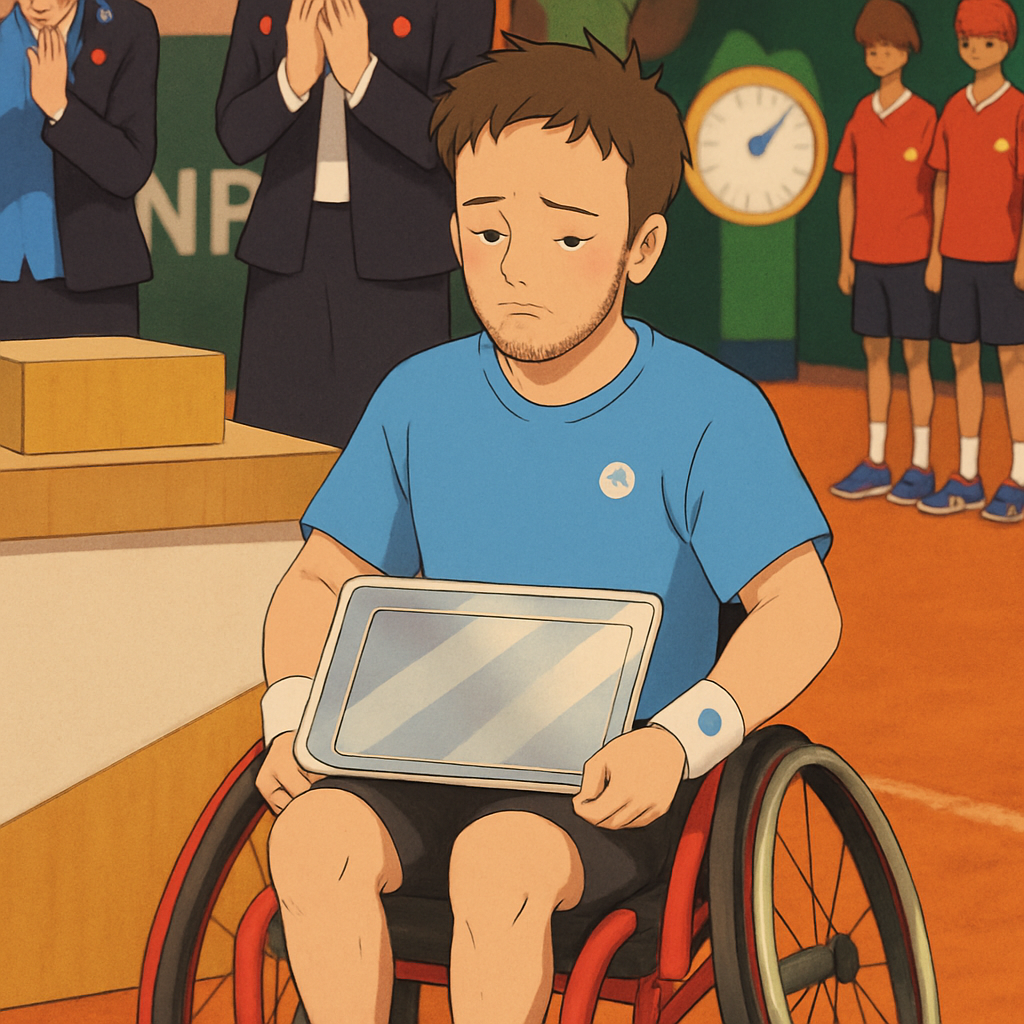PARIS — British wheelchair tennis star Alfie Hewett has publicly criticized French Open organizers for last-minute court changes at Roland Garros, calling the decision "disrespectful" to players and fans. The reigning wheelchair doubles champion expressed frustration after his semifinal match was abruptly moved from Court Suzanne Lenglen to an outside court with limited spectator access.
Hewett's Outburst Over Scheduling Chaos
The seven-time Grand Slam singles champion took to social media following his doubles victory with partner Gordon Reid, writing: "Another example of wheelchair tennis being an afterthought. Moving matches last minute to courts with no Hawkeye, no proper broadcast setup, and barely any fans able to watch - it's just not good enough at a Grand Slam." The post quickly gained traction, with over 15,000 likes and hundreds of supportive comments from fellow players.
Sources within the tournament confirmed to Tennis.com that the change was made due to a rain delay pushing back the able-bodied singles matches. However, Hewett argued this exposed systemic issues: "We're not asking for special treatment, just equal consideration when schedules change."
Impact on Players and Spectators
The late switch created multiple problems for the wheelchair competition:
- No electronic line calling on Court 14
- Limited camera angles for broadcast coverage
- Only 500 seats available compared to Lenglen's 10,000 capacity
French Open tournament director Amélie Mauresmo defended the decision in a press conference: "With unpredictable weather, we must make tough choices to keep the tournament on schedule. We have the utmost respect for all our competitors, including wheelchair athletes." However, she acknowledged the need for better contingency planning.
Historical Context of the Issue
This isn't the first time wheelchair tennis has faced scheduling controversies at Roland Garros. In 2022, matches were postponed three consecutive days due to rain, forcing players to compete multiple matches in one day. The International Tennis Federation (ITF) introduced new scheduling guidelines after that incident, but Hewett argues implementation remains inconsistent.
"The Grand Slams preach about growing the sport," Hewett told BBC Sport. "But how can we attract new fans when our showcase matches get hidden away? This was a semifinal featuring the top seeds - it deserved proper staging." Data shows wheelchair matches at Roland Garros typically receive about 30% of the TV coverage given to able-bodied matches at similar stages.
Broader Implications for the Sport
The incident has reignited debate about tournament scheduling priorities. Tennis analyst Mark Petchey noted on Eurosport: "This isn't just about court assignments - it's about visibility and respect for Paralympic sport at the highest level."
Key statistics highlight the growth potential being hampered:
- Wheelchair tennis viewership increased 45% since 2019
- But Grand Slam coverage remains disproportionately low
- Only 12% of wheelchair matches get center court placement
Looking Ahead: Player Demands
Hewett and other top wheelchair players are calling for three specific reforms:
- Guaranteed minimum court standards for all matches
- Earlier contingency planning for weather disruptions
- Equal broadcast resources for showcase matches
The ITF has acknowledged receiving formal complaints and says it will review the incident. Spokesperson Heather Bowler stated: "We're committed to working with all stakeholders to ensure wheelchair tennis receives appropriate presentation at our major events."
As the tennis world turns its attention to Wimbledon, all eyes will be on whether the All England Club addresses these concerns. For Hewett, the issue transcends any single tournament: "This is about the next generation of wheelchair players knowing they'll be treated as elite athletes, not afterthoughts."

